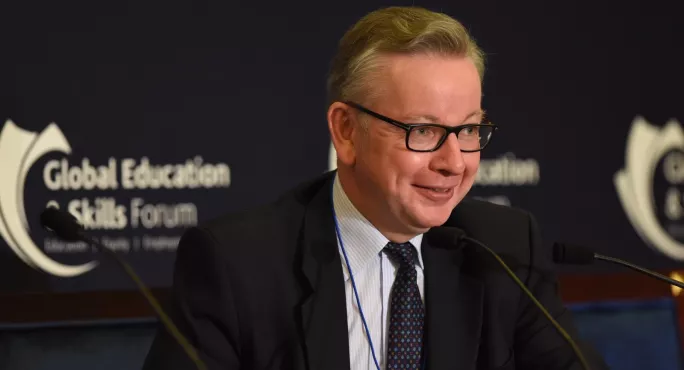Michael Gove has said immigration has helped to raise educational standards in London - but that it’s contributed to larger class sizes and shortages of school places in other parts of the country.
The former education secretary also said he regretted not focusing more on children’s mental health when he was in office, and that the government needed to do more work on early years education and for young people in alternative provision.
Appearing at the Global Education and Skills Forum in Dubai, Mr Gove, who campaigned for Brexit, said: “There’s lots of evidence that London becoming more diverse has contributed to educational standards rising.
Many immigrant parents whose children were in British schools had “extraordinarily high expectations of the state system,” he said.
“Some of the most demanding parents and some of the most involved parents are those who come from - they might be refugees from Somalia or Kosovo - but they want their children to succeed in Britain as British citizens.
“They have very, very high expectations of the school… it has contributed in some cases to a drive towards higher standards.”
However, Mr Gove said that in other parts of the country immigration had negatively impacted schools and made it “more difficult” for parents to get their children into good schools.
“[Immigration] has also contributed in other cases to pressure on services,” he said.
“There have been rising class sizes and difficulty for some people getting their children into the school they wanted - those new arrivals from other countries have made that more difficult.”
He said it was important that government took a “balancing” approach to immigration to address these issues.
Mr Gove admitted he had made a “mistake” as education secretary in not concentrating more on children’s mental health.
“In Britain one of my concerns is that we need to have better child and adolescent mental health services,” he said.
“One of the mistakes I made was not paying attention to mental health when I was education secretary”.
He said there now needed to be a greater focus on early years’ education and alternative provision.
“I think we now have to have a new emphasis on quality in early years’ education to make sure the workforce there is trained and supported to provide an even higher quality experience so that more children arrive at school ready to learn and confident in themselves.”
“One of the other areas we have to do more is for those children who have behavioural problems, find themselves excluded and who place a disproportionate burden on the state.
“If we have both the right mechanisms in identifying their problems early, and also the right kinds of provision for them if necessary, then we can transform the lives of people who would otherwise be bringing pain and misery on themselves and others.”
Quizzed on his attitude towards the expansion of grammar schools, he said he would be “open-minded” about the proposals the government bring forward.
Asked whether he would be pursuing the same policy if he was education secretary, he replied: “If I were in that position I would have to be doing what the prime minister wanted me to.
“Since the prime minister has a thumping mandate from Conservative MPs… I think she has every right to shape education policy in the ways that she thinks are right.
“I think the best thing that people who have been in the job beforehand can do is to try to support the current education secretary in her efforts.”




